So I did something with Fantastic Mr. Fox that I’ve never done before in my 12-plus years reviewing movies. I wasn’t concerned that I hadn’t read the book before I saw the film, as I never am, because movies based on books have to stand on their own. And while it’s probably inevitable that I will see a film differently depending on whether I have read the book beforehand, I certainly don’t feel an obligation to read the book first because I don’t believe I must be able to compare and contrast. (Not that I particularly avoid a book, either, before seeing a movie: I read Cormac McCarthy’s The Road immediately before seeing it, and now I’m reading Alice Sebold’s The Lovely Bones in preparation for Peter Jackson’s movie. But only because I want to, not because I think I have to.)
But then I saw Mr. Fox, and was so astonished by it, and realized that, in this case, I really did need to read the book before I could even begin to get my head around its movie adaptation. Because I needed more knowledge of Roald Dahl’s book in order to appreciate just what level of astonishing Wes Anderson’s movie is. Was it merely that Anderson was standing on some astonishing shoulders? Or was he standing on astonishing shoulders and then bulked up with some astonishing shoulders of his own?
Because I was sitting there in the screening room thinking, Wait. Did Dahl invent this notion of Mr. Fox (the voice of George Clooney: The Men Who Stare at Goats, Burn After Reading) being asked to settle down from his felonious thieving of the local farmers’ geese and chickens and hams and such by his wife, Mrs. Fox (the voice of Meryl Streep: Julie & Julia, Doubt), when she learns she’s got a kit in the oven? Did Dahl invent the notion that, years later, he might seek to return to his life of crime, and would do so on the sly so as not to get in trouble at home? Is it down to Dahl that Mr. Fox has a lawyer — Mr. Badger (the voice of Bill Murray: Get Smart, The Darjeeling Limited) — and that he needs a lawyer because, come on, no one wants to get into real estate and take on a mortgage without someone looking out for you? Did Dahl concoct the nerdy but nice Fox child Ash (the voice of Jason Schwartzman: Funny People, Walk Hard: The Dewey Cox Story), who likes to wear a white cape in honor of his favorite comic book, White Cape? Did Dahl invent whack-bat — think cricket meets baseball, with explosions — the hilarious team sport Ash is no good at in school? Did Dahl write dialogue that included frequent substitutions of we-know-precisely-what vulgarities with cuss, as in, “What the cuss?” and “Why the cuss didn’t I listen to my lawyer?”
Could you read Dahl’s Fantastic Mr. Fox, I wondered, and imagine the Rolling Stones playing in the background?
Does, in short, Dahl’s book feature drinking, smoking, and fake swearing among woodland creatures, stuff blowing up, attempted mass drowning in alcoholic cider, and numerous counts of attempted talking-animal murder?
I didn’t think so, but I had to check to be sure.
As it turns out, these things have no place whatsoever in Dahl’s story. (Well, there are numerous counts of attempted talking-animal murder, but that’s it.) It is not a metaphoric tale about marriage and compromise. It is not a story about how all of us are pretty fantastic, given our individual skills and talents, even if not everyone recognizes them at first. (Well, maybe it’s a teeny bit about that.) It is not a story about how our particularly human hopes and dreams look simultaneously ridiculous and poignant when seen through the perspective of critters not generally known to be concerned about school grades, property values, finding a middle ground between being true to ourselves and attentive to the needs of those we love, and the like.
Dahl’s version is a story about a clever fox who steals fowl from human farmers, and the farmers try to stop him using some surprisingly violent means, and that’s pretty much it. It is, in fact, plenty charming and plenty whimsical on its own, so much so that it could be hard to imagine how it could get much craftier.
But not for director Wes Anderson, and his coscreenwriter Noah Baumbach (who cowrote The Life Aquatic with Steve Zissou with Anderson, and is a filmmaker in his own right: Margot at the Wedding). They looked at a sweet-and-sour children’s story through a peculiarly skewed eye and said, This can be so much more. And they turned it into something touching and funny, and magically absurd and at the same time pointedly real. They turned it into something genius.
It’s in how their Fantastic Mr. Fox is like Ocean’s Eleven made by Rankin and Bass. (It makes you wish that when someone like Robert Zemeckis decided to make a kiddie version of A Christmas Carol he’d turned to Rudolph’s Shiny New Year for inspiration, not video-game cut scenes.) Or by Nick Park — oh, you know who Nick Park is: he’s the Wallace and Gromit guy — a cartoon that’s really and truly suitable for grownups and children alike, shrewd and witty in both its style and substance. Some of the sharpest, most observant dialogue of the whole year is in this script: “I enjoyed it, but I shouldn’t have done it,” says Mr. Fox about his return to crime; “If what I think is happening here is happening here, it better not be,” says Mrs. Fox when she suspects her husband is up to no good. Some of the most striking and most unexpected visuals in ages are here. On the small scale, there’s something about Mr. Fox’s little mustard-colored corduroy suit that is inexpressibly magnificent. On a larger scale, the accumulation of detail that creates this world, from pocket squares to paintings on the walls to the printed pattern on Ash’s little-boy underpants, makes it feel utterly authentic, as if this were a real place we were visiting, and a place we’d actually like to visit, where the people are as weird and as wonderful and as obsessed with living their own lives as, well, we ourselves are. It’s in how the lack of fluffy cuteness in Anderson’s stop-motion-animated characters makes them characters you can really love — even when they’re frustratingly complicated and contradictory and just confidently themselves — instead of something to awww over. It makes it easy to share their exuberance and their dissatisfaction and their disasters and their triumphs.
It’s in how Fantastic Mr. Fox is perfectly, deliciously odd, and just plain perfect.

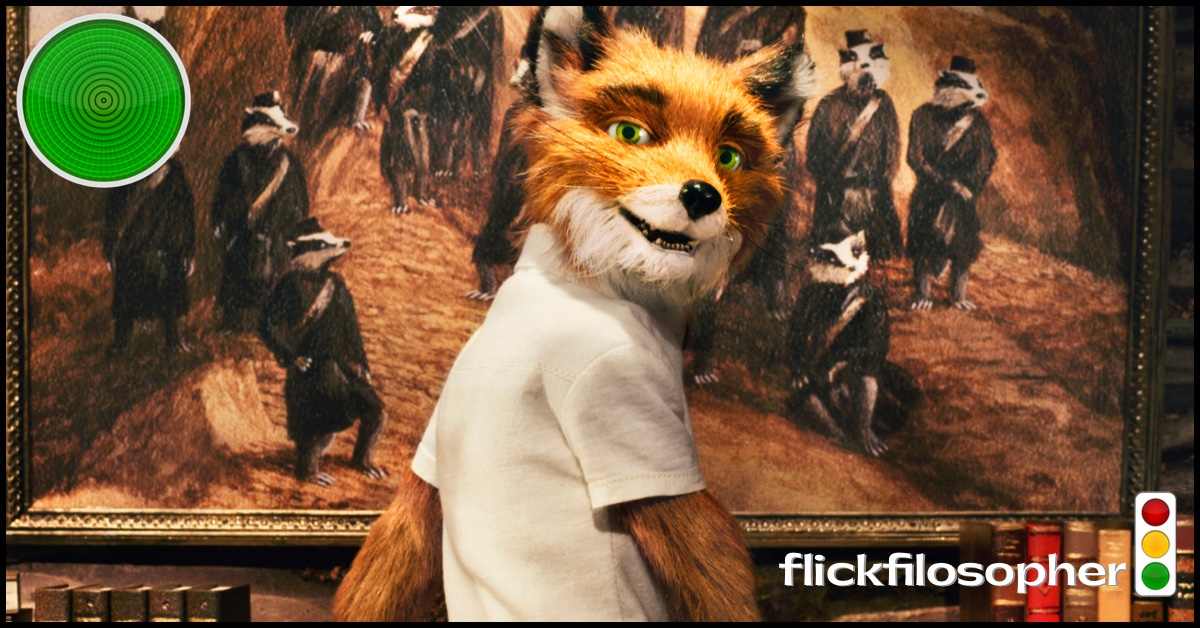









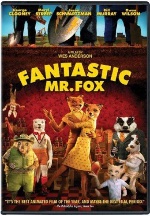
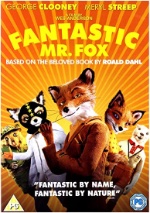
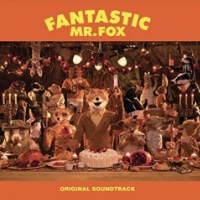
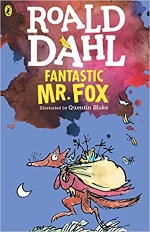
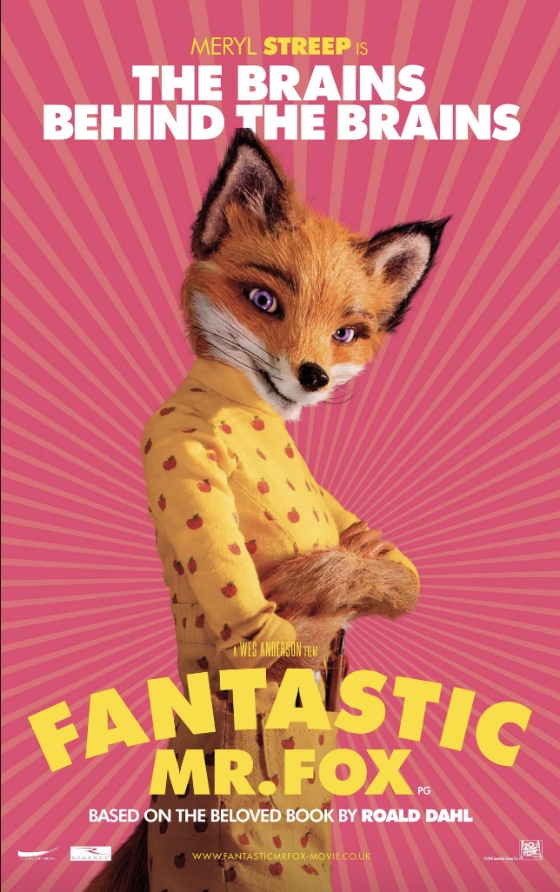






Another crack review from Mary – my favorite film critic in all the land.
After reading this post, I undoubtedly want to see Fantastic Mr. Fox asap!
I loved Roald Dahl when I was growing up so I was always going to see this. I loved the look of the film but I went with a couple of kids to it and they were a bit bored during it.
George Clooney and Meryl Streep should be a couple in a live action movie tho
What a great review. It seems like this film succeeded in expanding on the book in ways that you felt “Wild Things” did not. My daughter’s a fan of the book and we’re looking forward to taking her to see this. Thanks.
Hmmm, I am intrigued. Guess I will add this to the probable watch list.
the farmers try to stop him using some surprisingly violent means
Not that surprising for Dahl, really. His books generally seem to be dark and violent.
Fantastic Mr. Fox WAS my favorite book as a little kid. In seeing the preview for the movie, I had to wonder how much they’d changed. Sounds like quite a lot, but it’s good to hear it’s still a great tale.
…No pun intended.
Unfortunately no relevant female characters (if we take it as a movie for children, and not simply as a film adaptation of a novel and therefore exempt).
For the most part it’s charm comes from how it presents itself in odd scenes with quirky specialness. I was escpecially impressed with the scene where Ash (his entire character is absolutely hilarious) and Christopherson sit together and watch a miniature train travel along a track in the dark.
The film is no classic, but it is good, which is a great praise concidering the competition (2012, New Moon, Law Abiding Citizen: all horrible).
Just saw this last night. What an amazing movie. It was poignant, insightful, and hilarious just like you said.
I’m really not sure how great this would be for a young kid, simply because so much of the humor is so dry. But I was rolling the whole time.
Fantastic movie. Thanks for the recommendation. I’ll be recommending it to all my friends.
I have got to see this! Shame about the female characters…the preview had given me hope that Fox’s wife would be an involved character with funny lines. I’ll see it anyway.
surely the main message here is the urbanisation of foxes and how they continue to challenge humans in this new landscape.Note the name of the supermarket at the end – their fight with the humans continues as the farmers also become urbanised.